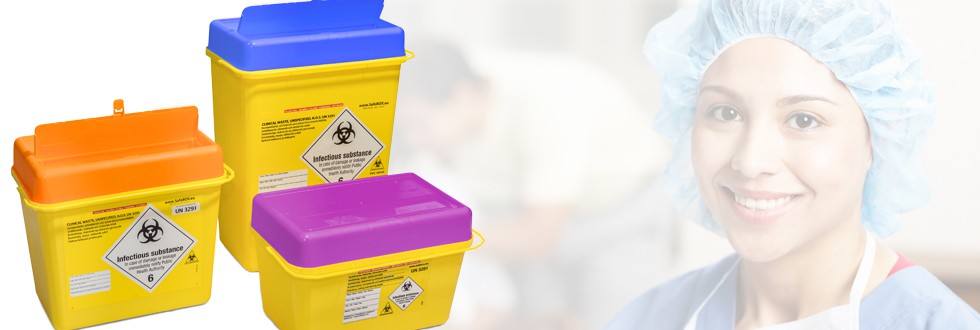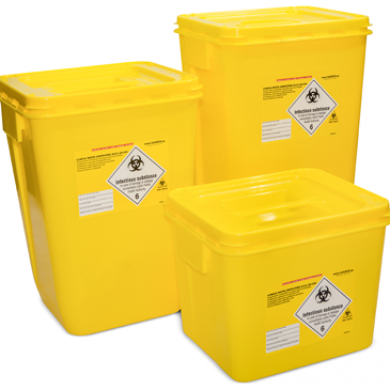Sharps, Medicines & Cytostatic Waste
Clinical waste
Clinical waste normally refers to waste products that cannot be considered general waste, produced from healthcare premises, such as hospitals, clinics, doctors offices, veterinary hospitals and labs. In Europe, wastes are defined by their European Waste Catalogue (EWC) Codes. EWC Codes are 6 digits long, with the first two digits defining the overarching category of waste, the next two defining the sub-category, and the last two defining the precise waste stream. Clinical waste comes under the ”18” codes, for example: ”18 01 01” corresponds to healthcare waste (18), from humans (01), that is sharp and not infectious. It has many waste things thrown.
Poor management of health care waste potentially exposes health care workers, waste handlers, patients and the community at large to infection, toxic effects and injuries, and risks polluting the environment. It is essential that all medical waste materials are segregated at the point of generation, appropriately treated and disposed of safely.
We have the right solutions to handle the waste correctly. Please contact our highly skilled customer support team for technical information, information requests or general guidance.
Medicines
If cytotoxic/cytostatic contaminated the medicines should be collected into a leak-proof storage container. It is important to ensure that solid and liquid medicines are kept separate. There have been several recorded incidences of fires started by chemical reactions within pharmaceutical waste bins. Tablets should be kept within blister packs or the original packaging. If these are not available, tablets of the same medicine should be collected into tablet envelopes or tablet pots before disposal.
We have the right solutions to handle the waste correctly. Please contact our highly skilled customer support team for technical information, information requests or general guidance.
Cytotoxic & Cytostatic
Cytostatic Agents have been beneficial in fighting tumors with their ability to induce cell growth arrest. They are widely used within the healthcare establishments but are also toxic and carcinogenic. Any waste that is contaminated by cytotoxic and cytostatic medicines should be classed as cytotoxic and cytostatic waste. This waste includes medicines in tablet, liquid, cream or aerosol form. Waste that could be contaminated by these medicines include:
- sharps, eg needles, syringes, scalpels, blades and sharp instruments
- used glass bottles and vials
- personal protective equipment, eg gloves, masks and gowns
- syringe bodies and tubing.
Cytotoxic and cytostatic waste is classified as hazardous/special waste. You must store, transport and dispose of this waste as hazardous/special waste to make sure you do not cause a risk to human health or the environment. You are committing an offence if you do not follow the regulations for dealing with hazardous/special waste.
We have the right solutions to handle the waste correctly. Please contact our highly skilled customer support team for technical information, information requests or general guidance.
News
Back to top
Copyright 2013 © SafeBOX Sweden 2013






